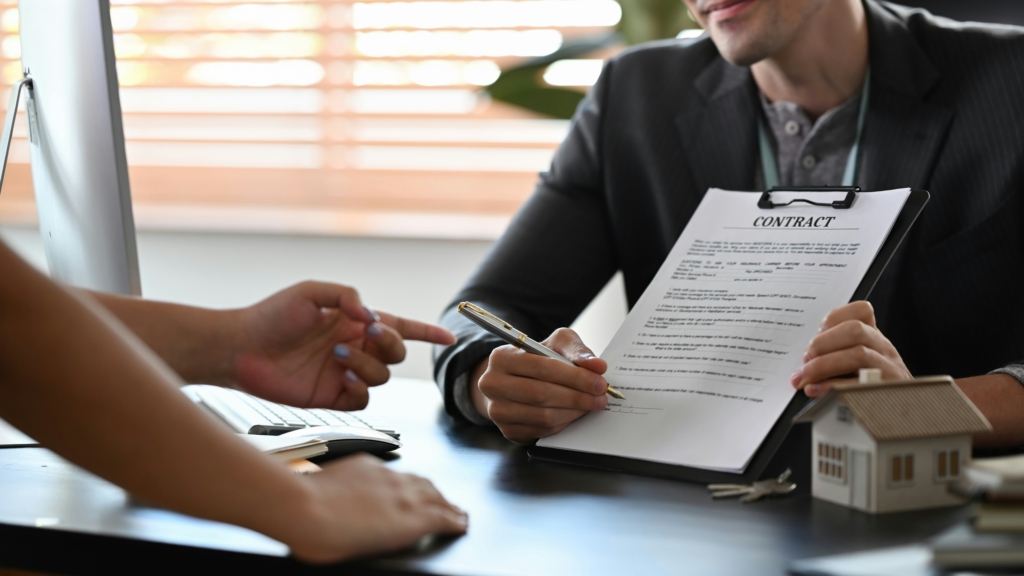SBA Loan Credit Score Requirements And Other Standards To Meet

Build strong business credit
with your EIN

There is a wide range of SBA loans available based on your industry and what you’re planning to do with the money. It’s important to note that you’ll need more than personal credit to qualify for an SBA loan. That doesn’t mean that you can have bad credit on the personal side though.
For some loan options, the Small Business Administration uses the FICO Small Business Scoring Service (SBSS). The FICO SBSS is a business credit scoring system that combines information from your business and personal credit history as well as your business finances.
Your business is then rated from 0 to 300 — similar to your personal credit score, but more involved. For SBA loans, the current minimum SBSS credit score is 155 for all of their loans under $350,000 but this changes as market conditions fluctuate.
The SBA itself doesn’t have a personal credit score in mind when considering your business for the loans it insures. The lenders providing the loan might. We’ll look at both the SBA requirements and the most common lender requirements for SBA loans.
What Is the Minimum SBA 7a Loan Credit Score Requirement?
An SBA 7(a) loan is a common option for general-purpose financing. It offers flexibility with a fixed or variable interest rate along with loan amounts of up to $5 million. These are 5 to 25 year term loans depending on the loan’s purpose. Allowing you ample time to repay.
You’ll have to meet some eligibility requirements before you start thinking about the credit score you need. You’ll also want to check for additional SBA loan requirements within the size standards set forth by the Small Business Administration.
The SBA has a minimum FICO SBSS score of 155 to qualify for their loans. Most SBA lenders require a personal credit score of at least 650 to qualify for a 7a SBA loan. So if you’re looking to apply and have a bad credit score, you’ll need to make some improvements first.
In addition to good credit scores, you may also need the following to qualify for a 7(a) business loan:
- Collateral. If you don’t have business assets to back the loan, you may be required to collateralize a car, home, or other personal assets if you default. Smaller loans mean less collateral is needed. Loans under $25,000 might not require collateral at all.
- Capital Requirements. How much money do you need and what are you going to do with it? Be prepared with a plan on how you’ll be using the funding along with a cash flow report to help a lender see the specifics.
- Financial Forecasts. What are your projected revenues and expenses for the next month, quarter, and year? Demonstrate your plan to include the loan repayments in your budget.
What Is the Minimum SBA 504 Loan Credit Score Requirement?
For owner-occupied commercial real estate, the SBA 504 loan, aka the CDC loan, can be used to invest in assets that promote the growth of businesses and create jobs. This type of SBA lending can be useful for:
- Existing buildings
- Land purchases
- New facilities
- Construction
- Heavy equipment financing
As with other SBA loans, the 504 small business loan requires an SBSS business credit score of at least 155. Many lenders require borrowers to meet at least a 680 credit score to qualify.
Don’t rely solely on your business credit score though. Your business’s cash flow carries a significant amount of weight here. Without a strong cash flow to repay the loan, you could get denied.
Unlike a conventional loan that’s made up of one or two parts in the form of lender funding with or without a down payment, this small business loan is made up of three parts:
- 50% funding from the lender
- 40% funding from a CDC
- 10% down payment from you
There are a few other eligibility standards to consider before applying for this loan:
- Real estate purchases have to be at least 51% owner-occupied.
- Qualified management expertise
- Good character
- Sound business plan
- Ability to repay the loan
Financing with an SBA 504 loan can allow you to expand and make major investments in your company and the community. Higher credit score requirements can be a dealbreaker for some.
If you’re looking to improve your business credit score before putting in your loan application, consider starting with a Business Credit Builder Account with Credit Strong. This account was designed to help your business build better credit history.
With an easy qualification process, you could get an instant bank loan with repayment terms of up to 10 years. On-time payments to your credit builder loan contribute to building payment history and maintaining a business tradeline. All while reporting to major credit bureaus.

What Is the Minimum SBA Express Loan Credit Score Requirement?
Long wait times for a decision on other SBA loans put a damper on how quickly you can get the ball rolling. The 24-36 hour turnaround time on an SBA Express Loan could be just what you need to speed things up.
The need for speed could cost you later. The trade-off for how quickly these loans are done is a higher interest rate. Make no mistake, the speed of a decision doesn’t make these loans any easier to get approved for.
The SBA Express Loans require a minimum personal credit score of 650. There are several other requirements you’ll need to meet as well:
- You must have already used other financing options before the SBA Express loan such as invoice financing, or merchant cash advance.
- Have invested equity in the business
- Strong revenues
- Solid business plan
- Collateral if the loan is over $25,000
- No delinquent loans with the government
- Can demonstrate reasonable financing isn’t available elsewhere
- A Debt service coverage ratio (DCSR) of 1:1 or higher
- Business must be profitable
All in all, you can use SBA express loan proceeds for many of the same purposes as a 7a loan, but the timeframe is much shorter in comparison.
What Is the Minimum SBA Microloan Credit Score Requirement?
SBA Microloans were designed for underserved groups of entrepreneurs who have no credit history or have low income. They’re much smaller business loans than ones we’ve already discussed. They have a cap of $50,000 and a repayment term of up to eight years.
The minimum personal credit score for an SBA microloan is 620, which makes it more accessible for the communities it was meant to serve. It can be used as working capital, supply purchases, and other expenses.
As with all SBA loan programs, the SBA isn’t the entity lending to borrowers. They work with intermediaries like nonprofits and Community Development Financial Institutions (CDFIs).
It can be difficult to qualify for traditional financing if you struggle with credit. These intermediaries aim to make it easier on you.
If you’ve met the SBA size standards and checked to make sure you’re in the right industry to qualify, then there are just a few more things to check off your list:
- U.S. citizen, lawful permanent resident, or lawful non-citizen with a work permit.
- Must be a newly established business, start-up, or non-profit child care center.
- As part of the loan terms, you may be required to attend business training classes.
- If the loan is over $20,000, you may be required to do a “no credit elsewhere” test to demonstrate that you don’t qualify for other funding like invoice factoring.
- You’ll still need to put up collateral, even with lower credit requirements.
Be aware that microloans can be difficult to find as they’re limited to certain areas and have set limits for SBA financing and staffing.
What Is the Minimum SBA Disaster Loan Credit Score Requirement?
If your business has been affected by hurricanes, wildfires, natural disasters, or civil unrest, you could qualify for an SBA Disaster Loan. Most recently, the EIDL program opened to businesses that lost income due to the pandemic through the COVID-19 EIDL.
if you’re familiar with the PPP loan, this one is very similar. Unlike the PPP loan, there are no forgiveness options available to borrowers under this SBA loan program.
EIDL or Economic Injury Disaster Loans allows applicants to get up to $2 million to use as working capital, expenses, rent, and payroll, among other things. The minimum credit score will depend on the loan amount:
- Loans under $500,000 have a minimum credit score of 570.
- Loans over $500,000 have a minimum credit score of 625.
The collateral requirement holds steady with any loans over $25,000 needing to provide collateral. Loans over $200,000 require a personal guarantee.
What Is the Minimum SBA Export Express Loan Credit Score Requirement?
The SBA Export Express Loan is essentially a sibling of the SBA Express loan. It’s meant for exporters who are looking to expand their business. It has many of the same requirements too. It allows you to get a fast loan approval or denial typically in 24-36 hours.
The max loan amount for these recently lowered to $500,000 as of October 2021. And the minimum credit score to qualify is 660.
The two other standards you’ll have to meet are:
- Must be in business for 12 months or more
- Proof that funds will be used for eligible development export projects
Lenders may be more stringent with export loans and might use alternative business credit scoring models. Not all traditional lenders are able to accommodate an Export Express loan. You may have to look for alternative lenders or credit unions to apply for this.
What Is the Minimum Community Advantage Loan Credit Score Requirement?
The Community Advantage Loan is still a pilot loan program but is slated to be another resource for underserved communities and entrepreneurs who don’t qualify for traditional financing options. This program partners with “mission-oriented” lenders to expand the reach of the SBA.
The great thing about this small business loan is that you’re not limited to the amount of collateral or the bank balances you’re able to keep. The loan amounts cap out at $250,000 and the two requirements that have to be met are:
- Proof of a viable business idea
- Meets the SBA size standards
The minimum FICO SBSS business credit score to qualify for this loan is 140. There’s no noted minimum personal credit score for this loan. If you’re unable to qualify for this one, it may be best to go for a conventional loan, personal loan, or funding circle.
Whether you have good credit, no credit, or bad credit, there’s likely an SBA loan choice that could help you expand or simply keep your business running.
The credit scores for each of these loans are just one factor in approvals. A strong business plan, financials, and collateral to back the loan are just as important as your credit score.
It also helps to have a good understanding of the requirements for the loan so you don’t waste valuable time applying for loans that aren’t made for you.
The money borrowed with an SBA loan isn’t the easiest to get approved for, but it can provide much-needed financing to get your business where you want it to be.
CreditStrong for Business is the only 0% interest business credit builder in the nation
